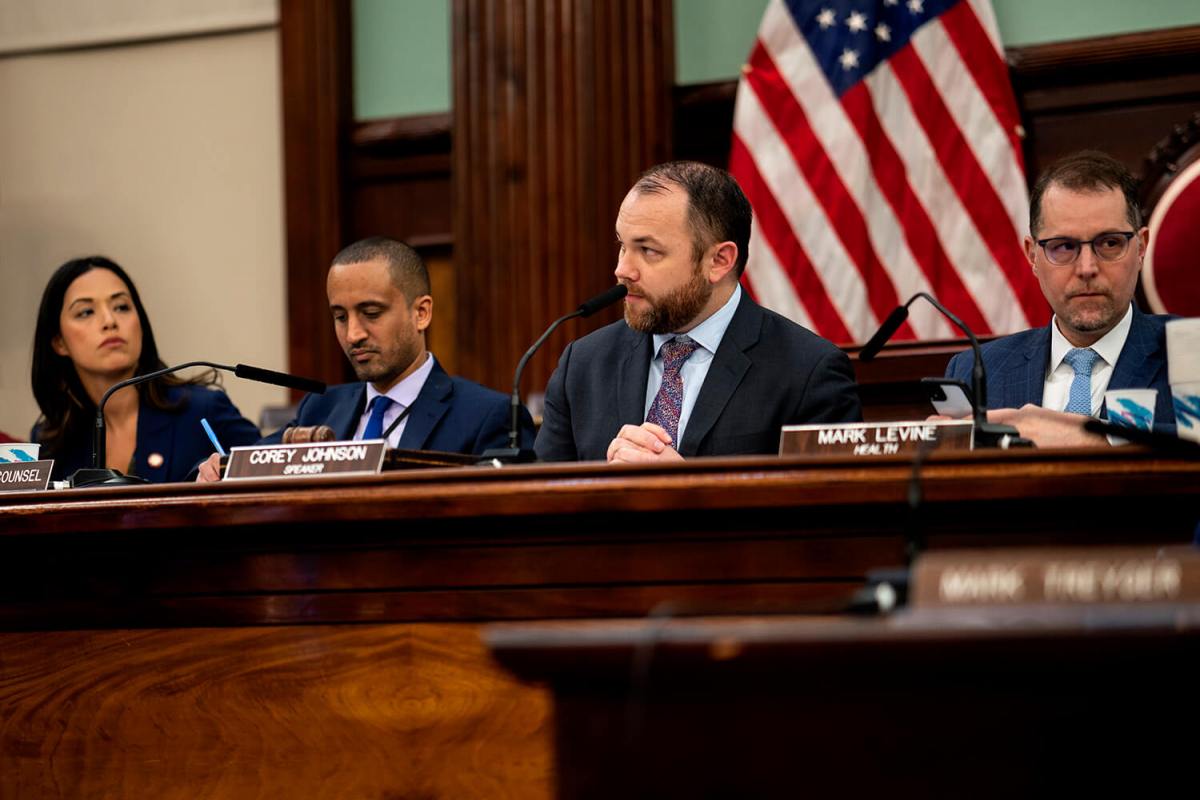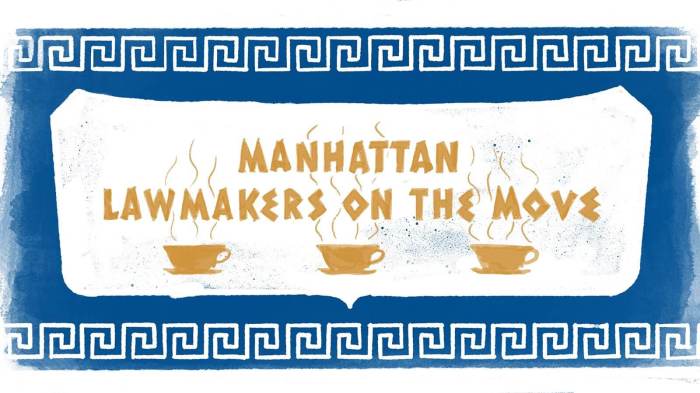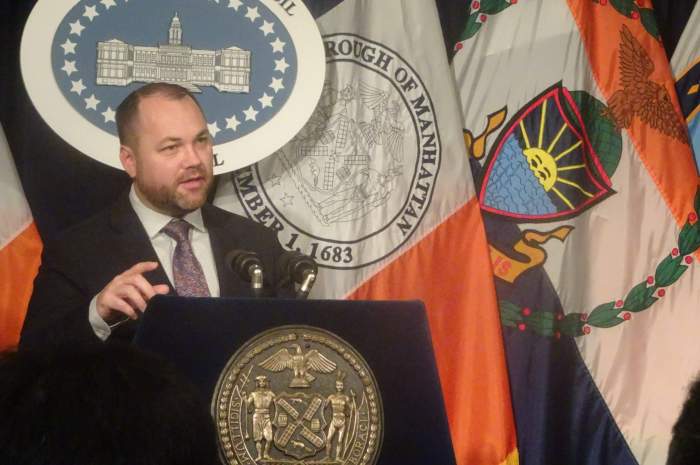In the midst of the COVID-19 outbreak, New York’s lawmakers and federal agents want to make one thing clear to the citizens they represent; be vigilant, but don’t panic. Collectively, they are more than prepared to handle the predicament.
The City Council held a hearing yesterday afternoon about COVID-19’s arrival in New York. Council Speaker Corey Johnson (D-Chelsea, Hell’s Kitchen) presided over the hearing, along with Council Members Mark Levine (D-Manhattan Valley, Manhattanville), Carlina Rivera (D-East Village, Gramercy Park) Keith Powers (D-Upper East Side, Carnegie Hill) and Mark Treyger (D-Brooklyn).
“Today is about getting the facts,” said Johnson. “Today is about addressing this crisis in a sober, thoughtful way. Now, people are rightfully concerned and anxious. It’s okay to ask questions in that regard. But let’s not move towards hyperbole; let’s not do things that are going to cause panic and scare people. Let’s focus on what the City is doing to be prepared.”
Johnson began the hearing with an overview of our current situation. The first case of COVID-19 in New York State emerged at the beginning of March; a 39-year-old Manhattan woman had contracted the virus while traveling in Iran. Since then, 22 people in the state have tested positive for the virus.
As Johnson pointed out, only a minority of patients will experience severe symptoms. In fact, 80 percent of patients experience mild symptoms that resolve on their own. Nevertheless, the virus can be life-threatening to the remaining twenty percent of patients – particularly the elderly and those with pre-existing conditions.
“Most people who contract COVID-19 will not need hospital care or urgent medical care at all,” said Johnson. “That said, we’re taking this virus very seriously. Some New Yorkers are more vulnerable than others, and new information is emerging every day.”
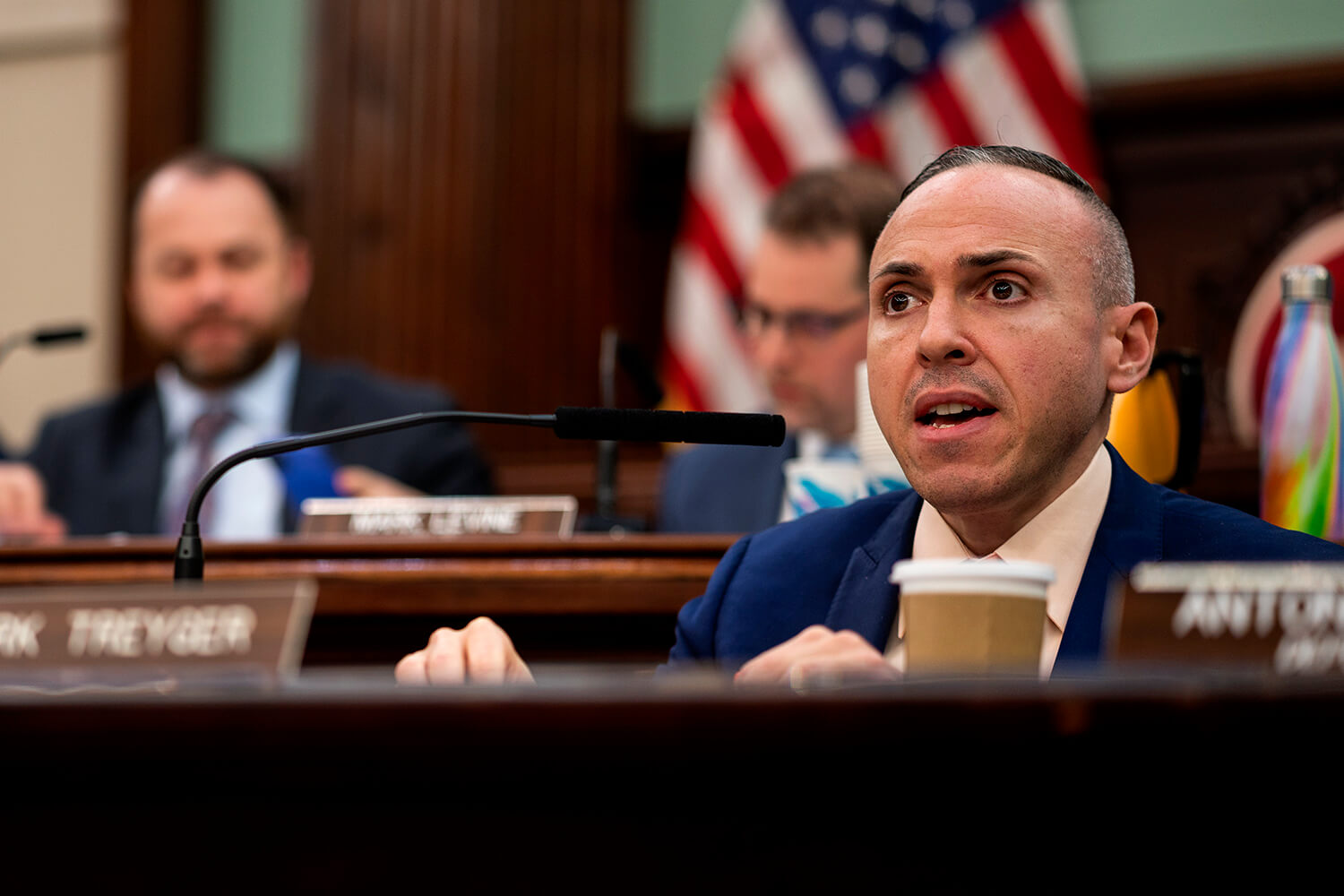
Johnson’s advice for New Yorkers was, overall, quite simple; wash your hands, use hand sanitizer, and stay home if you start to feel sick. He also emphasized that the City will help any New Yorker who suspects they may have the virus, regardless of citizenship status or insurance.
“New Yorkers can rest assured knowing that every single person can receive medical care regardless of their insurance, income or immigration status,” said Johnson. “If you’re feeling unwell, please call 311 and request help.”
Carlina Rivera, Chair of the Committee on Hospitals, spoke highly of the City’s Health + Hospitals (H&H) system, and showed complete confidence in the system’s ability to confront the outbreak.
“The city hospitals are a key partner in our effort to prepare for COVID-19,” said Rivera. “New York is home to one of the country’s most renowned hospital systems, and this includes our public hospital system, H&H. H&H’s eleven acute care hospitals are located throughout our city, and serve many of our citizens who rely on Medicaid or lack insurance. H&H never turns away anyone who is seeking care.”
After they said their part, the Council heard testimony from NYC Heath Commissioner Dr. Oxiris Barbot. Barbot prefaced her testimony by stating that the situation regarding COVID-19 is “rapidly changing”; as such, she implored the Council to listen to her advice with this truth in mind.
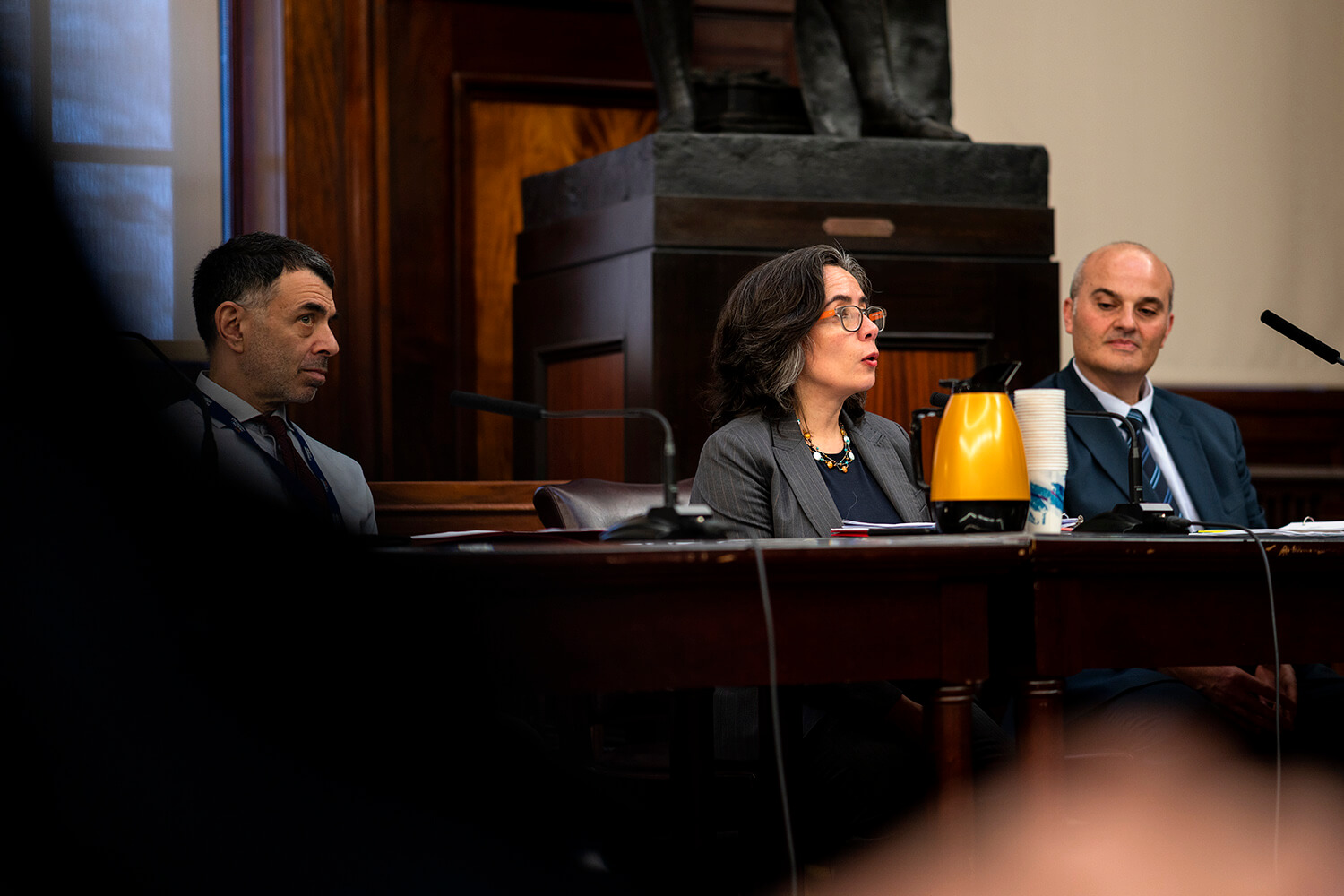
One recent development, she said, was her Commission’s shift in focus towards “community spread”. When the outbreak began, doctors focused on vetting New Yorkers who had recently traveled to affected areas, like China, Italy and Iran. However, now that the virus is in our community, recent travel is no longer considered to be a defining risk factor.
“There is no longer that travel nexus,” said Barbot. “The virus is in our community, and we can’t just go by travel. It’s an important component, but we’ve loosened our testing requirement so that travel is no longer a reason to exclude people for treatment.”
During the hearing, Speaker Johnson asked her to address the many New Yorkers who have grown fearful of taking public transit, or going to public events, in the wake of the outbreak. According to Barbot, the current guidance is as follows:
“From the very beginning, we have been encouraging people to go about their daily lives, but practice vigilance. So we want New Yorkers to use the subway, go to the theater, go to gatherings and celebrate life. But we also want New Yorkers to pay attention. Stay attuned to the facts, and don’t give into the fear that others are propagating across social media.
“Also, from the very beginning, we’ve been transparent to say that this is an evolving situation. The scientists of the community are learning every day about the science of the virus; beyond that, we’re learning every day about the transmission. The guidance we’ve provided from the beginning [in regards to hygiene] will carry through whether we remain in this particular status of the transmission, or whenever things change.
“We have been very careful not to overdramatize the situation, because this is a time for vigilance, not for panic. We want New Yorkers to know all the information.”



